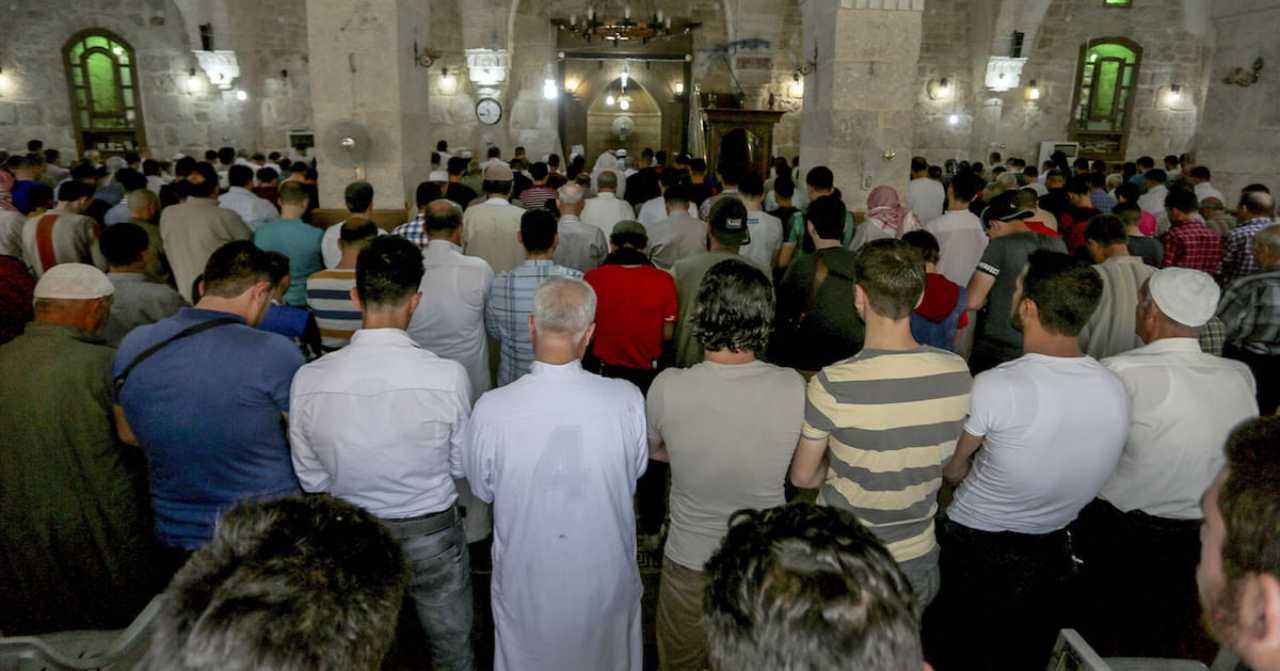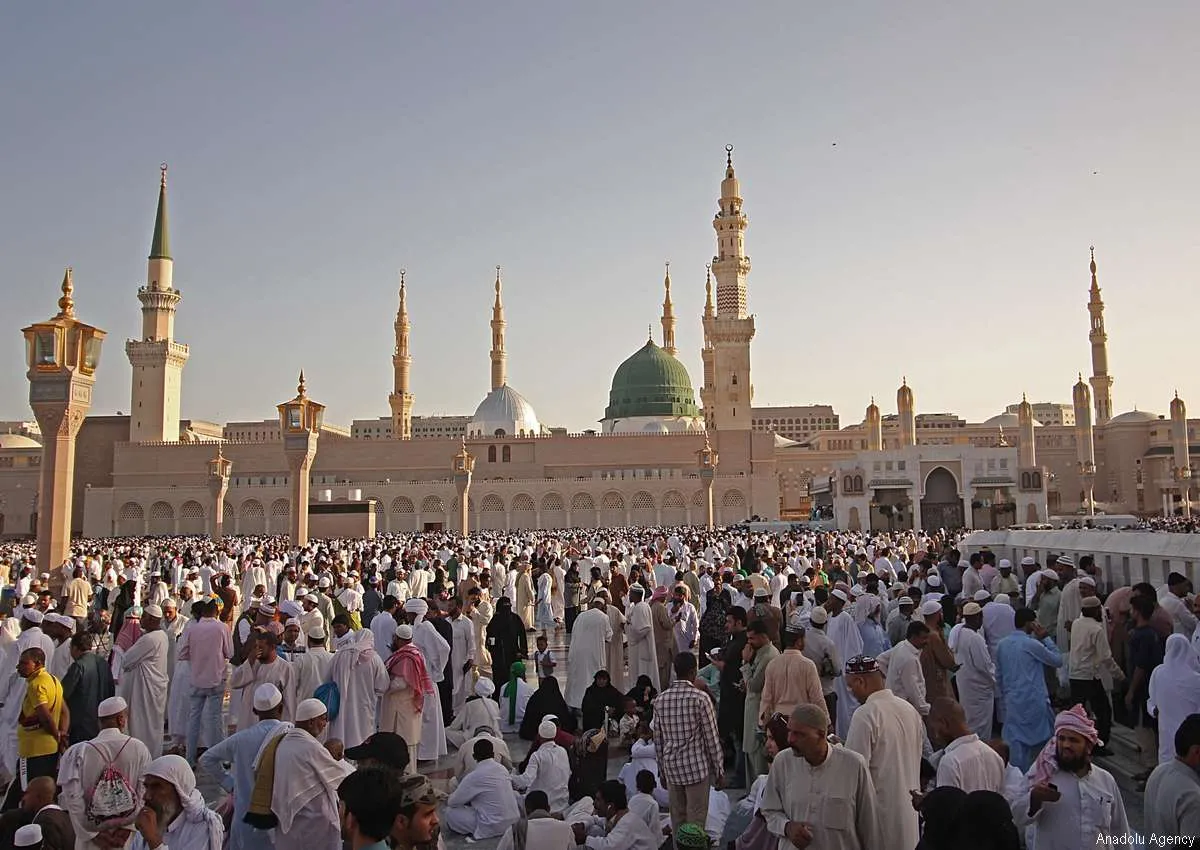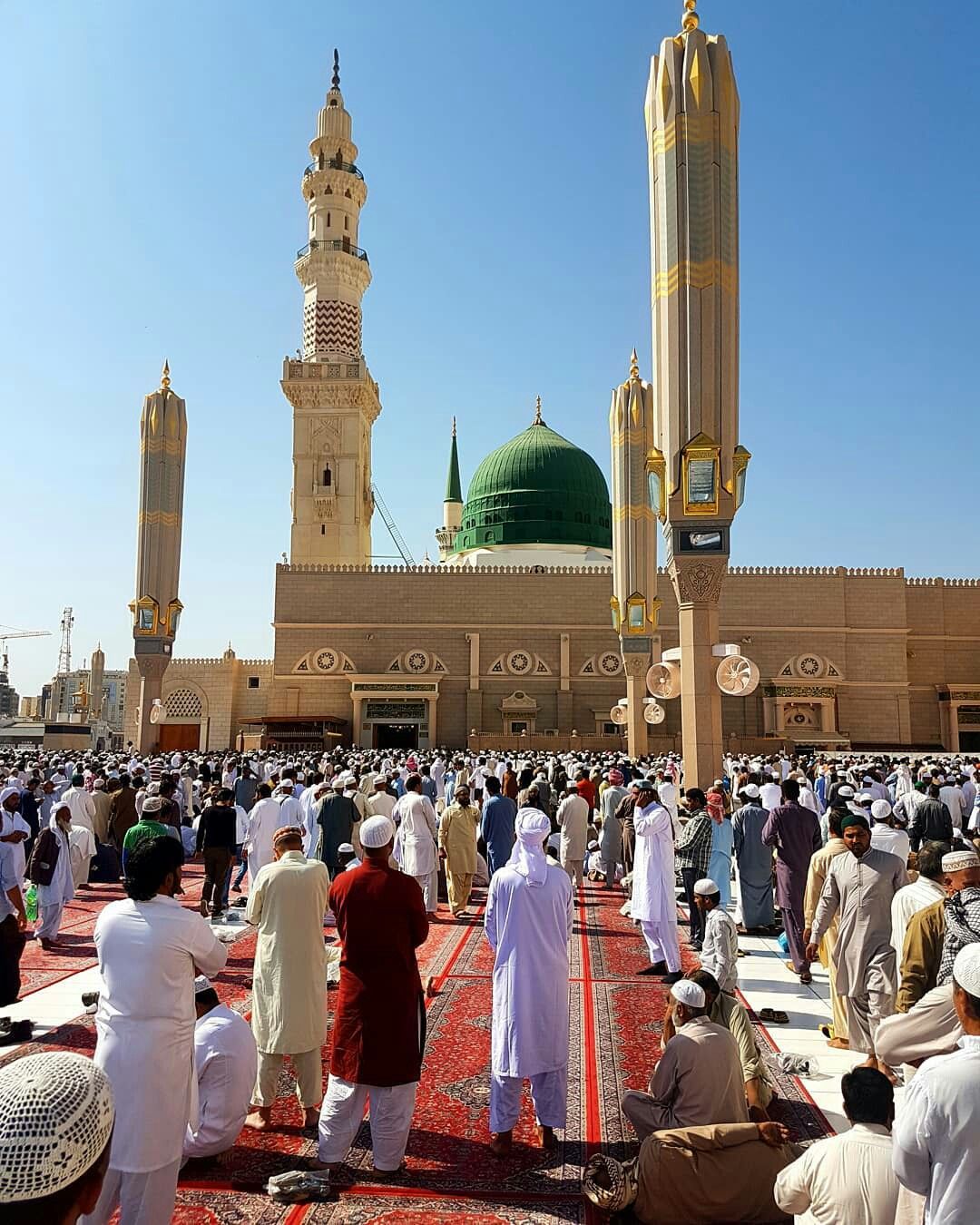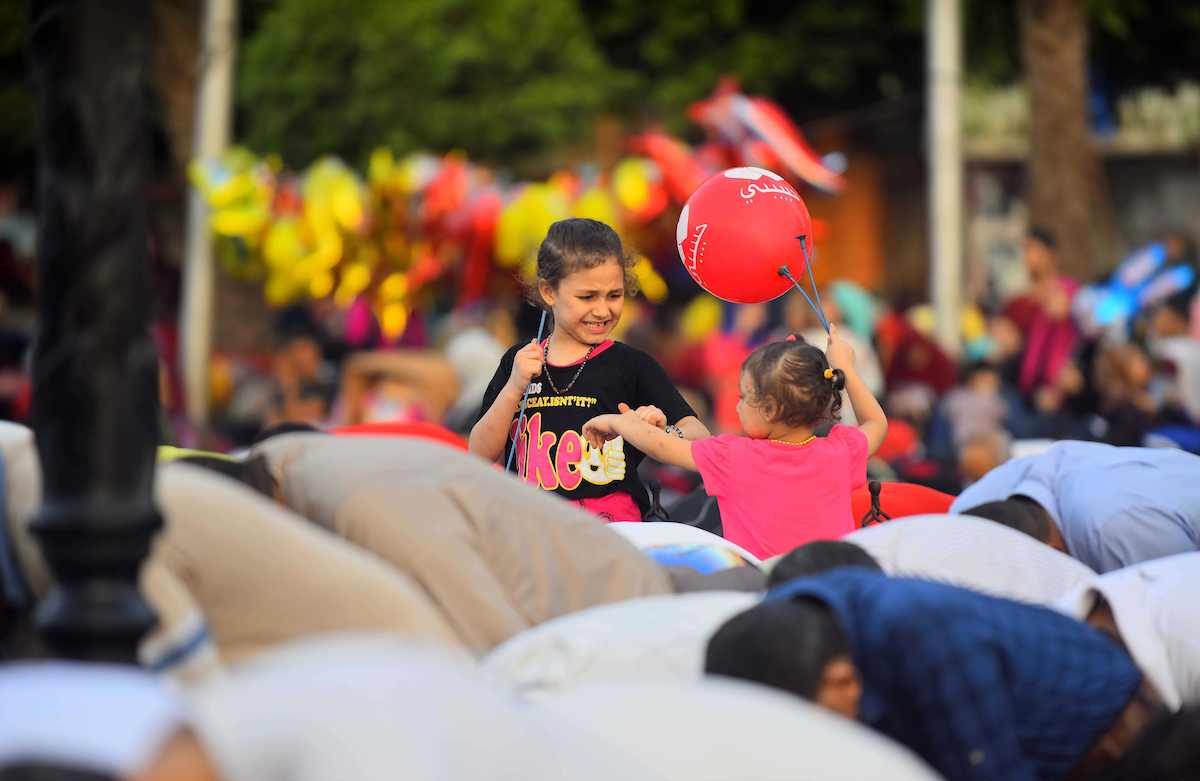In one of our posts, we featured what Eid al Adha means for Dubai residents and Muslims in general. In this post, we will discuss what Eid al-Fitr means for Muslims and the significance of this holiday. Eid Al Fitr is a celebration of joy and triumph, marking the end of the holy month of Ramadan. It’s a time to gather with friends and family, exchange gifts, and indulge in delicious food.
Also Read: 20 Things to Do During the Eid Al Fitr Holidays
This holiday is observed by millions of Muslims all around the world and is a much-anticipated event in the Islamic calendar. With its roots in religion and tradition, Eid Al Fitr is a time to reflect on the past month’s spiritual discipline and to give thanks for blessings. Join us as we explore the history, traditions, and celebrations surrounding Eid Al Fitr.
Contents
- What is Eid Al Fitr?
- Eid Al Fitr 2023 UAE Schedule
- Traditions and Celebrations
- Significance of Ramadan and fasting
- Eid Al Fitr Around the World
- Do’s and Don’ts During Eid Al Fitr
- Video: What is Eid al-Fitr? Ramadan & the Festival of Breaking the Fast – Behind the News
- Frequently Asked Questions
- 1. What is Eid Al-Fitr?
- 2. When is Eid Al-Fitr celebrated?
- 3. What is the significance of Eid Al-Fitr?
- 4. What are the traditional celebrations of Eid Al-Fitr?
- 5. What is the importance of charity during Eid Al-Fitr?
- 6. What are some common foods served during Eid Al-Fitr?
- 7. What is the origin of Eid Al-Fitr?
- 8. Is Eid Al-Fitr celebrated globally?
- Final Thoughts

What is Eid Al Fitr?
Eid Al Fitr has its roots deeply entrenched in history and religion. Historically, the celebration dates back to the time of the Prophet Muhammad and the early days of Islam.
It marks the end of Ramadan, a month-long period of fasting and reflection, and is a time to give thanks for the blessings received during this spiritual journey.
The religious significance of Eid Al Fitr is undeniable, as it represents a time of renewal, forgiveness, and coming together with loved ones to celebrate the rewards of devotion and discipline.
The holiday serves as a reminder of the values and traditions that form the foundation of the Islamic faith, and is a time for Muslims to strengthen their connection to their religion and community.
Eid Al Fitr 2023 UAE Schedule
In 2023, residents and expats can expect long-days holidays from April 20, 21, 22, and 23 on account of Eid Al-Fitr.
Note: The actual schedule of this event depends on the sighting of the moon. So please stay tuned as the dates are nearer for it will be announced to the public by UAE authorities.
Traditions and Celebrations

Eid Al Fitr is a time of celebration, where friends and family come together to mark the end of the holy month of Ramadan. One of the most cherished traditions of this holiday is greeting each other with “Eid Mubarak,” wishing one another a blessed celebration.
Another important aspect is giving charity to those in need, a reminder to share the blessings of the season with others. Wearing new clothes is another traditional practice, symbolizing a fresh start and a feeling of joy.
Finally, family gatherings and feasting are central to the celebrations, where sumptuous feasts are enjoyed with loved ones, creating unforgettable memories.
These traditions and celebrations bring people together, fostering a sense of community and reminding us all of the importance of generosity and togetherness.
Significance of Ramadan and fasting

Ramadan is a time of spiritual reflection and renewal for Muslims worldwide, and fasting is a central component of this holy month. The purpose of Ramadan is to bring believers closer to God through acts of self-discipline and devotion.
Fasting during Ramadan involves abstaining from food, drink, and other physical needs from sunrise to sunset, allowing individuals to focus on their faith and connect with a higher power.
The act of breaking the fast, known as Iftar, is a time of great joy and community, as families and friends come together to break their fast and share a meal.
Through Ramadan and fasting, individuals are able to strengthen their willpower, deepen their spiritual connection, and practice empathy for those in need.
Eid Al Fitr Around the World

Eid Al Fitr is a celebration that transcends borders and unites Muslims all over the world. Despite its global observance, each region has its own unique way of marking the occasion.
From the bustling bazaars of the Middle East to the colorful street markets of Southeast Asia, the festivities surrounding Eid Al Fitr are a feast for the senses.
In some countries, the holiday is marked with large family gatherings and feasts, while in others, it’s a time for prayer and reflection. Despite these regional differences, the underlying theme of togetherness and gratitude remains.
Do’s and Don’ts During Eid Al Fitr
Eid Al Fitr is a time to celebrate with friends and family, but it’s also important to be mindful of cultural and religious customs. Here are some do’s and don’ts to keep in mind during the holiday:
Do’s:
- Greeting with “Eid Mubarak” – Greeting others with “Eid Mubarak” (Blessed Eid) is a traditional way of exchanging well wishes during the holiday.
- Charity – Giving to the less fortunate is an important aspect of Eid Al Fitr and helps to fulfill the spirit of Ramadan.
- Eid prayers – Attending Eid prayers at the mosque is an integral part of the celebration, where Muslims come together to offer their thanks and blessings.
- Fine attire – Wearing your finest clothes and celebrating with family and friends is a way to express joy and happiness during the holiday.
- Traditional food – Indulging in traditional Eid food and sweets is a way to celebrate and enjoy the holiday with loved ones.
Don’ts:
- Fasting – Fasting is not allowed on Eid day, as it is a time of celebration and feasting.
- Inappropriate clothing – Avoid wearing inappropriate or revealing clothing, especially when attending mosque or praying, to show respect for the holiday and the religion.
- Loud or disrespectful behavior – Loud or disrespectful behavior is not appropriate during the holiday and should be avoided.
- Haram activities – Engaging in activities that are haram (forbidden) in Islam, such as gambling or drinking, goes against the spirit of the holiday and should be avoided.
- Negative speech – Avoid speaking negatively or spreading gossip, as it goes against the values of kindness and respect that are emphasized during Eid Al Fitr.
By following these guidelines, you can ensure that your Eid Al Fitr celebrations are joyous, respectful, and in line with cultural and religious customs.
Video: What is Eid al-Fitr? Ramadan & the Festival of Breaking the Fast – Behind the News
The video about Eid Al-Fitr is an excellent resource for anyone interested in learning more about this important Islamic holiday. Through the eyes of the children, we get a unique and engaging perspective on what Eid Al-Fitr means to them.
The kids in the video share their knowledge of the holiday, how they’ll be celebrating, and what it represents to them.
This video is a great way to learn about the traditions and customs of Eid Al-Fitr, from someone who is experiencing it for the first time. The children’s innocence and excitement about the holiday are sure to be infectious and will leave you feeling inspired.
This video is perfect for children, educators, and anyone who wants to learn about this important holiday in a fun and interactive way. So, if you’re looking to deepen your understanding of Eid Al-Fitr, this video is definitely worth watching.
Frequently Asked Questions
1. What is Eid Al-Fitr?
Eid Al-Fitr is an important Islamic holiday that marks the end of Ramadan, the month of fasting.
2. When is Eid Al-Fitr celebrated?
Eid Al-Fitr is celebrated on the first day of Shawwal, the 10th month of the Islamic calendar. The date is determined by the sighting of the moon.
3. What is the significance of Eid Al-Fitr?
Eid Al-Fitr is a time of celebration and reflection, marking the end of Ramadan and giving thanks for blessings. It is also a time to forgive and be forgiven, to renew family and community ties, and to make plans for the future.
4. What are the traditional celebrations of Eid Al-Fitr?
Traditional celebrations of Eid Al-Fitr include attending mosque for Eid prayers, exchanging gifts and greetings, wearing new clothes, visiting family and friends, and feasting on traditional foods.
5. What is the importance of charity during Eid Al-Fitr?
Giving charity to those in need is an important part of Eid Al-Fitr. Muslims believe that by sharing their blessings, they are fulfilling one of the purposes of Ramadan, which is to purify the soul and to help others.
6. What are some common foods served during Eid Al-Fitr?
Common foods served during Eid Al-Fitr include sweet dishes such as baklava and sheer kurma, as well as savory dishes like kebabs and biryanis.
7. What is the origin of Eid Al-Fitr?
Eid Al-Fitr has its roots in the early days of Islam, when the Prophet Muhammad (peace be upon him) declared that Ramadan should be followed by a day of celebration.
8. Is Eid Al-Fitr celebrated globally?
Yes, Eid Al-Fitr is celebrated by millions of Muslims around the world, regardless of their cultural or ethnic background. Despite regional differences in celebrations, the underlying theme of gratitude, renewal, and togetherness remains the same.
Final Thoughts
In conclusion, Eid Al Fitr is a beloved holiday that brings communities together to celebrate the end of Ramadan. From the early morning Eid prayers to the delicious food and festivities, this holiday is a time to show gratitude and embrace the values of love, compassion, and generosity.
Whether you observe this holiday with your family and friends or with the larger Muslim community, the spirit of Eid Al Fitr is one of hope and happiness. It’s a time to come together and appreciate the blessings of life and the power of faith and tradition.
So, take some time to learn more about this amazing holiday and to embrace the joy and celebration that comes with Eid Al Fitr.
READ NEXT: List of UAE Public Holidays